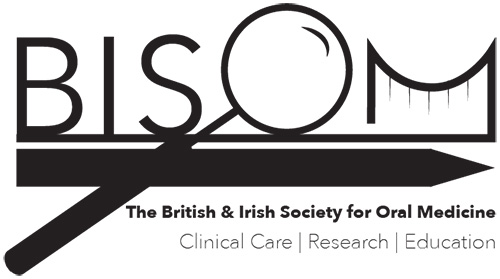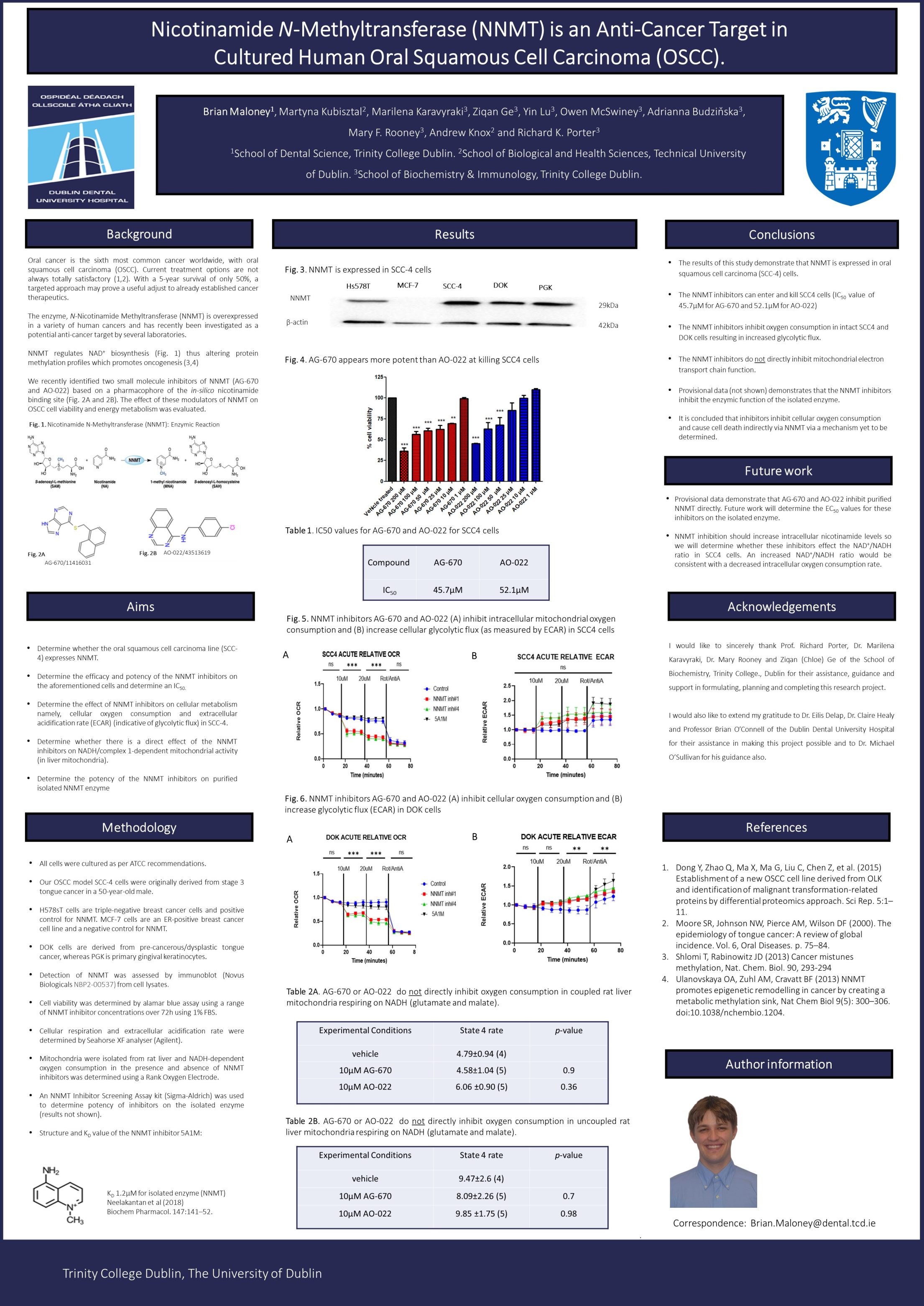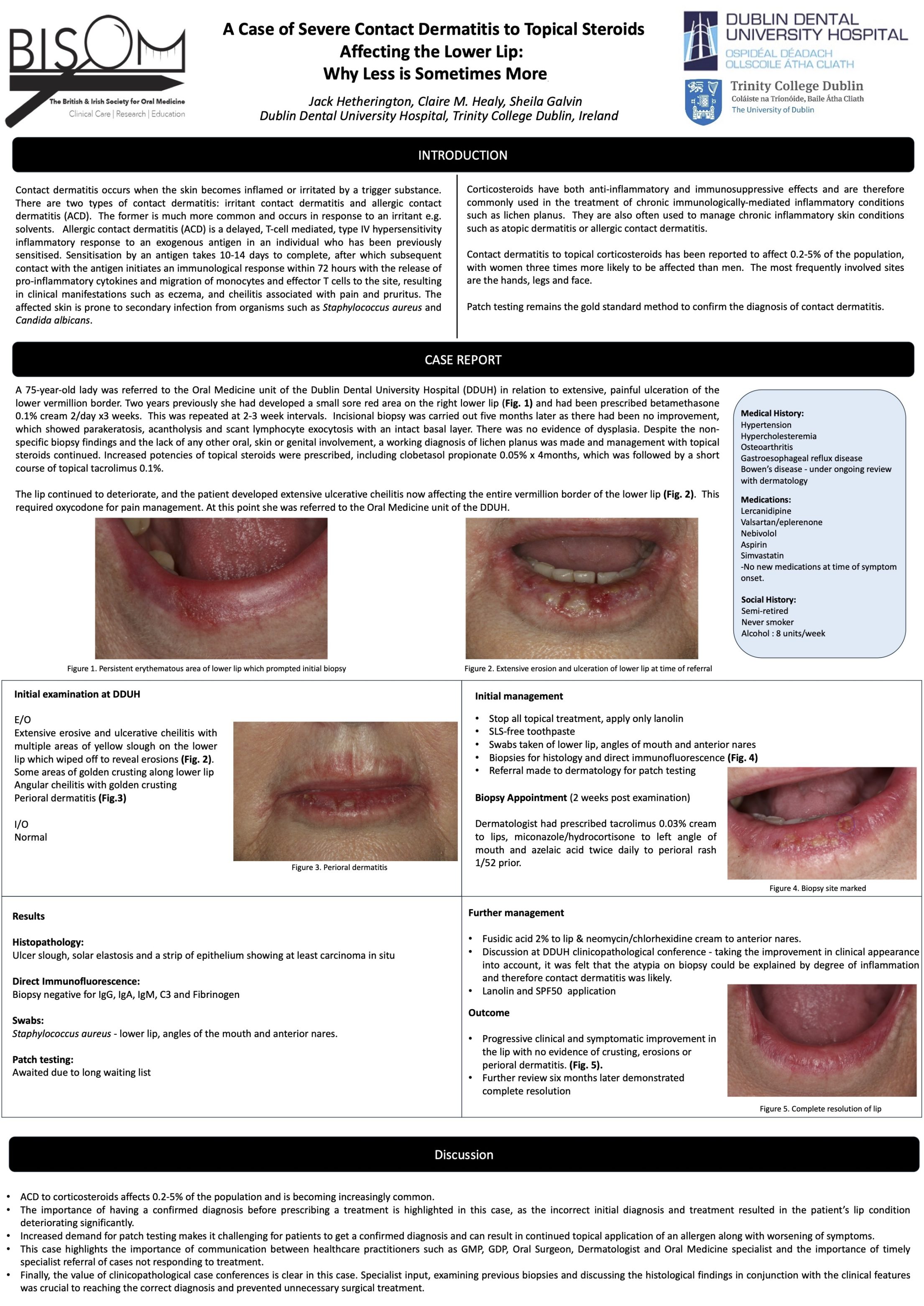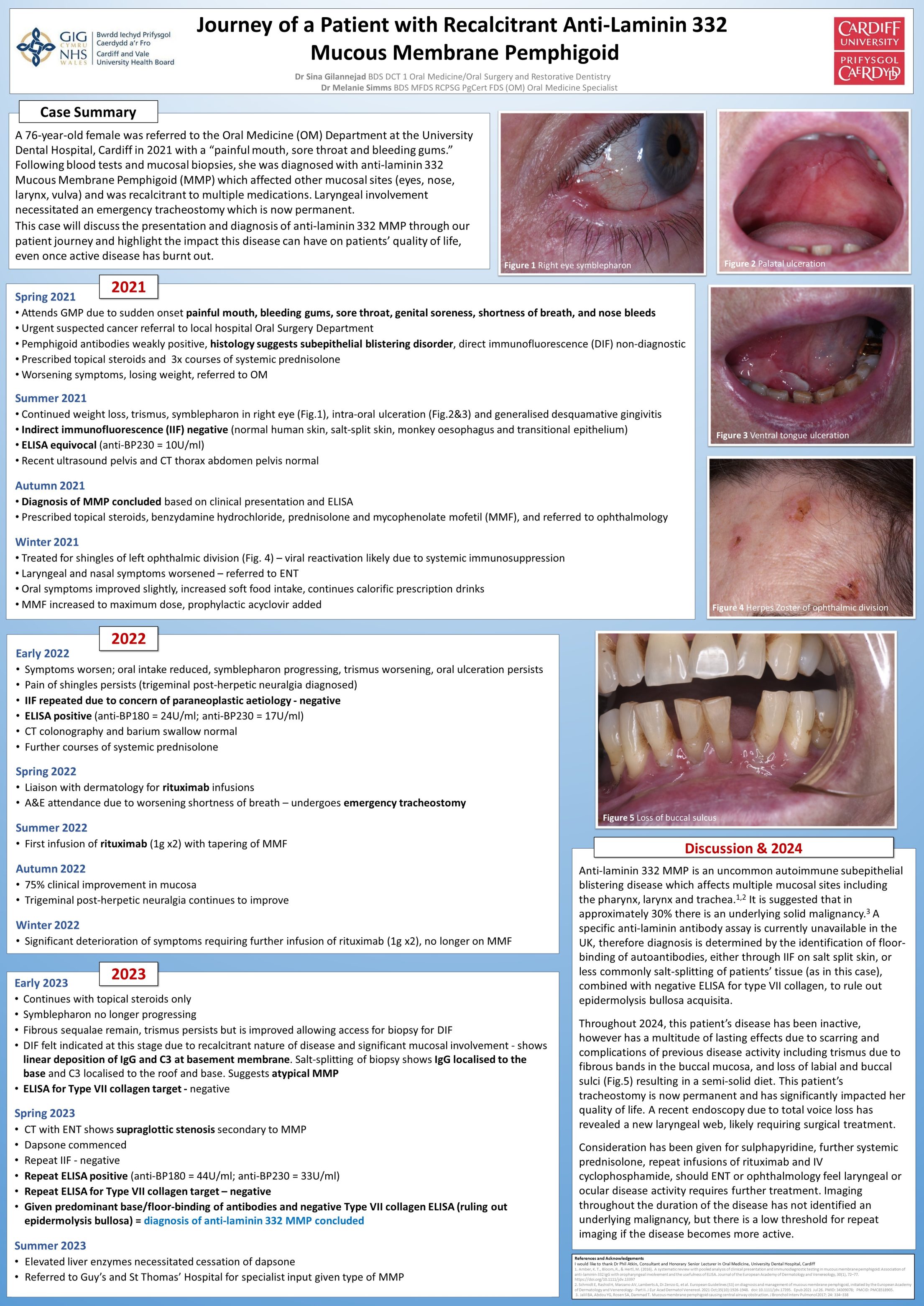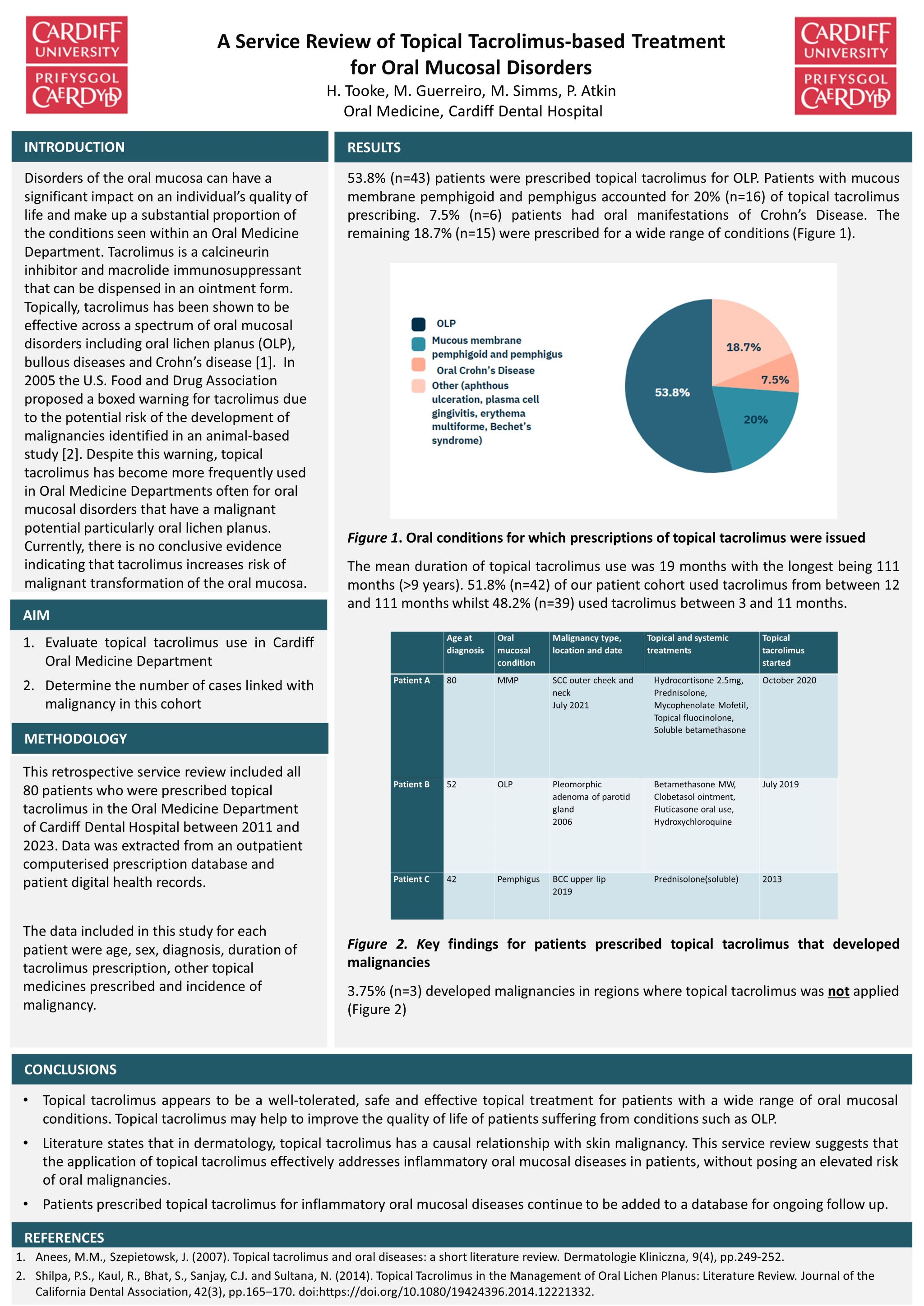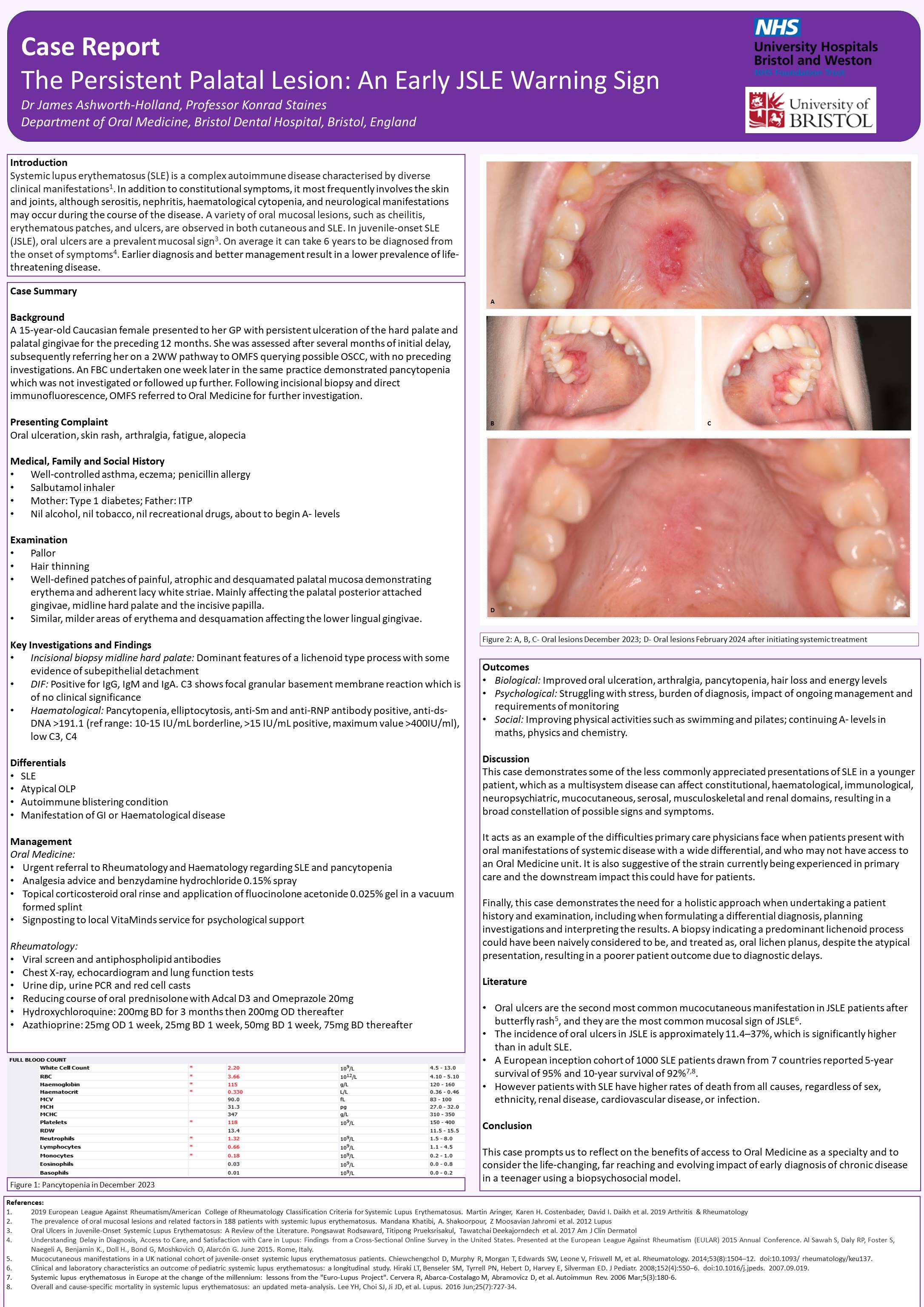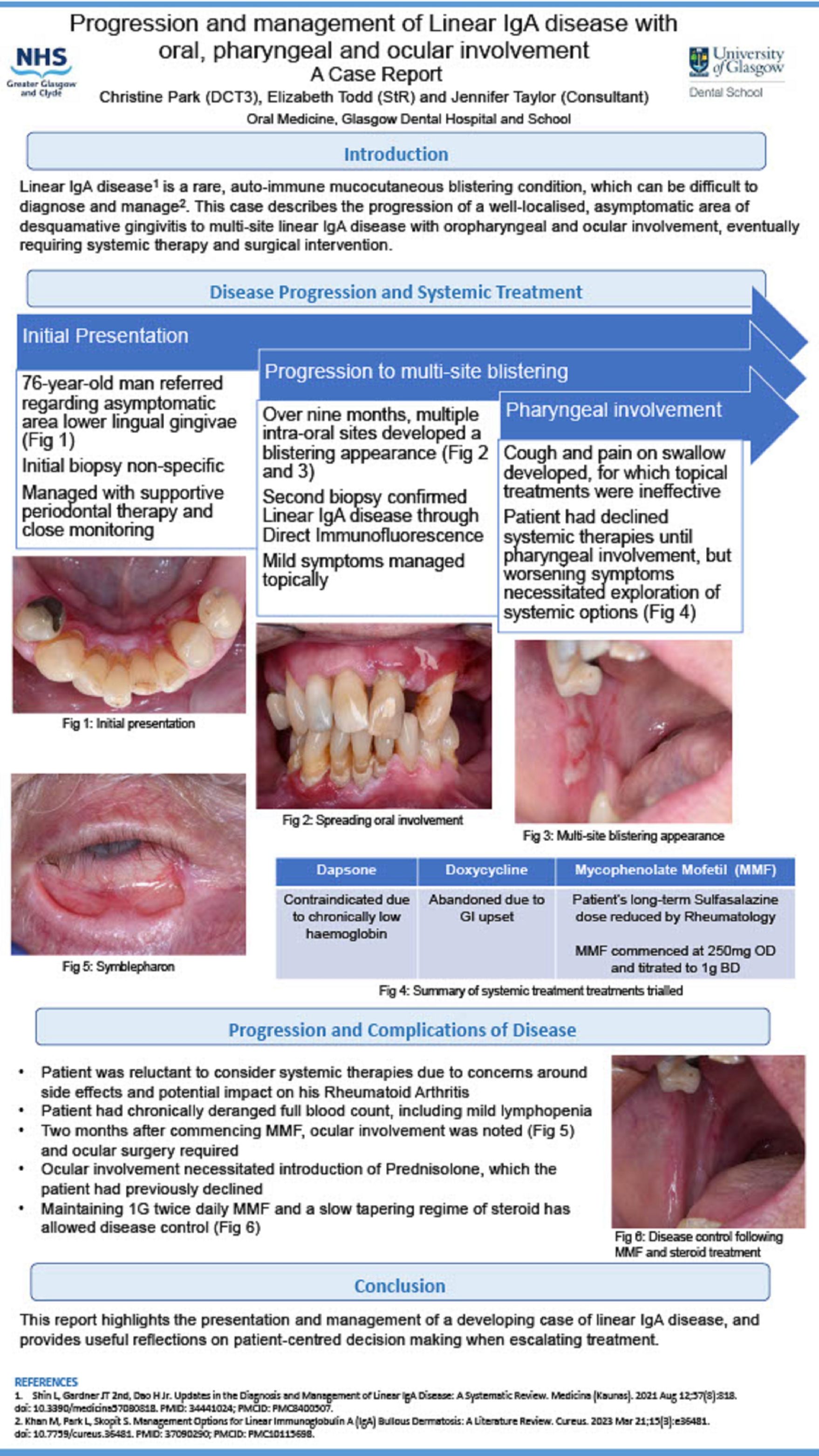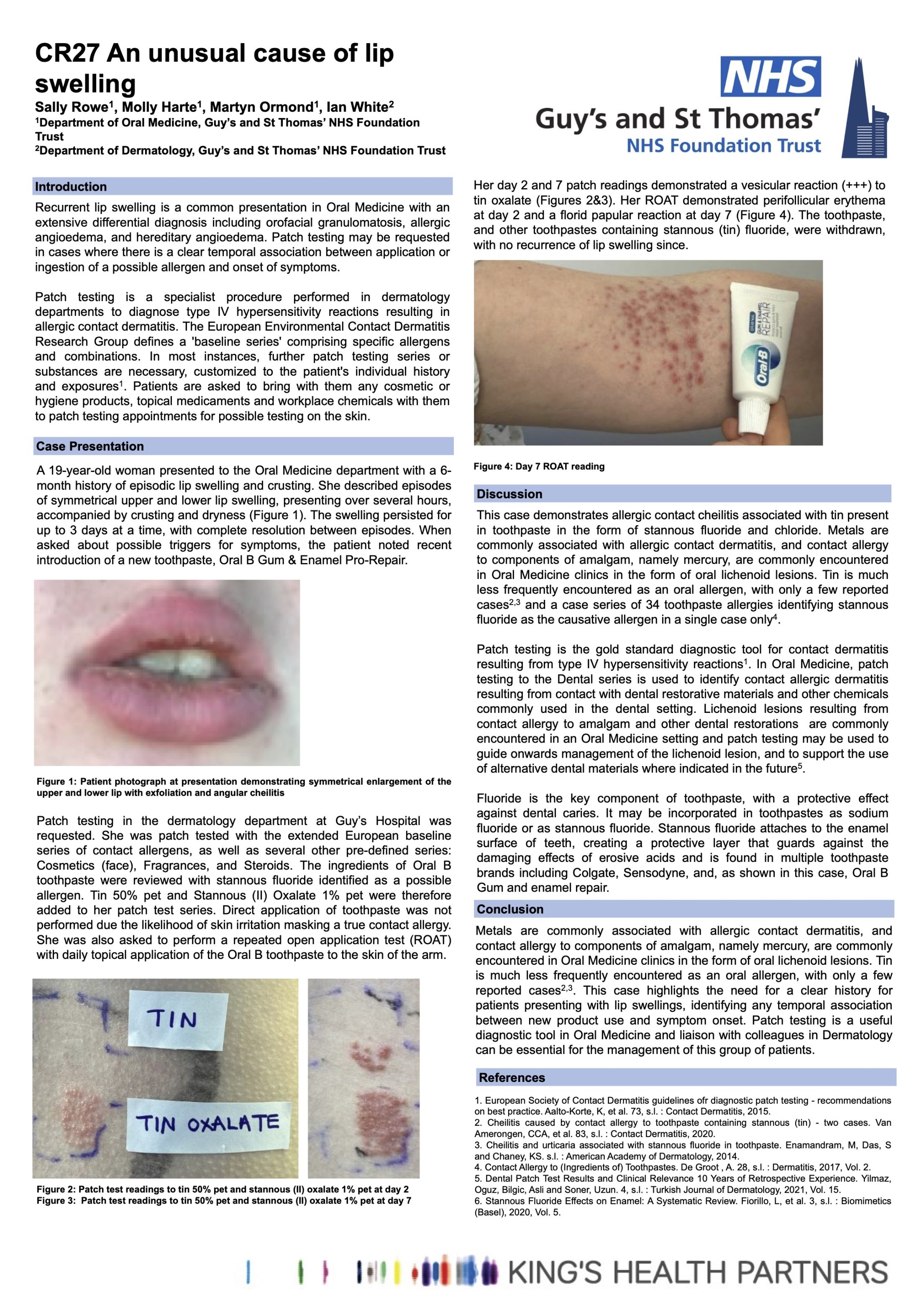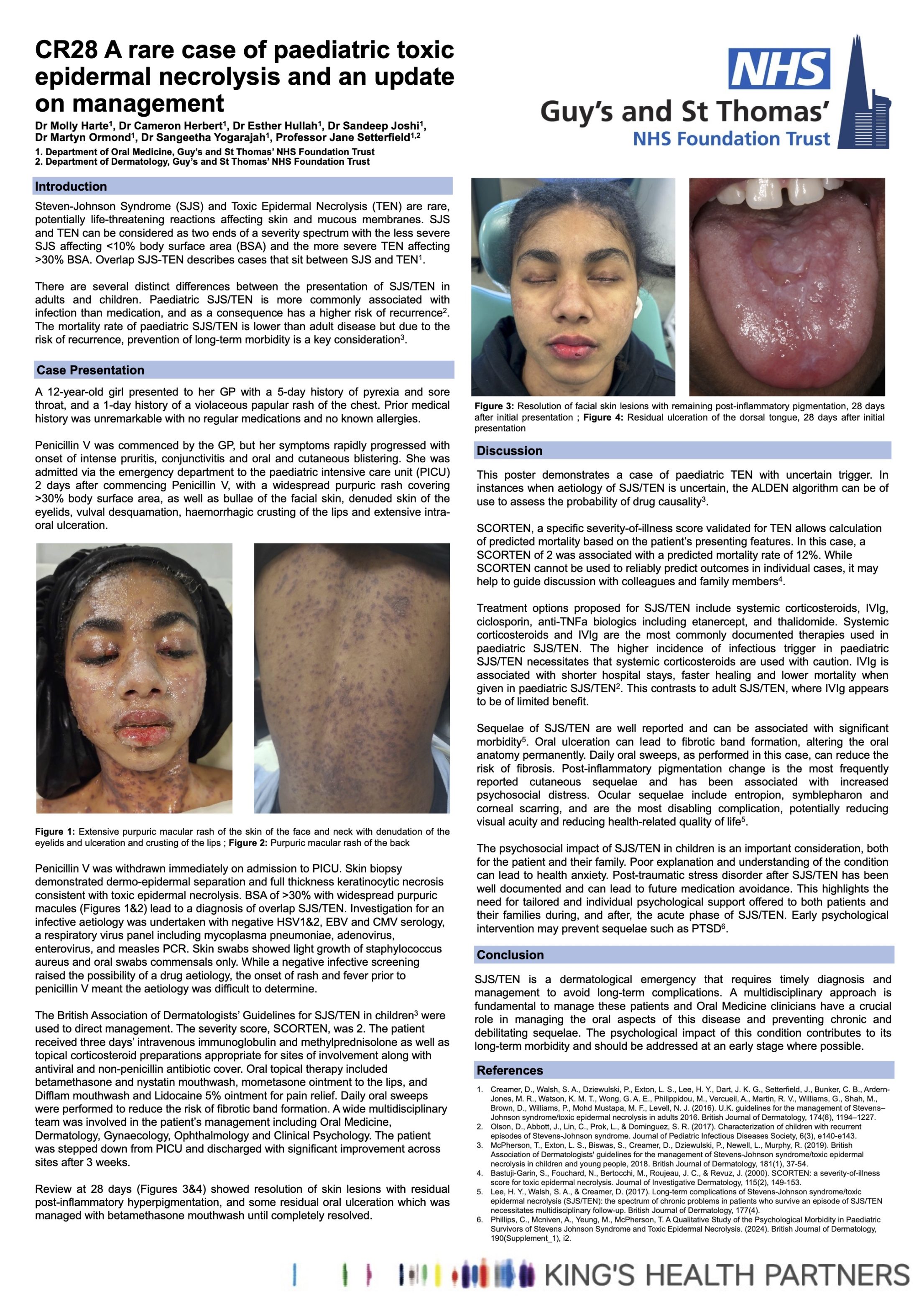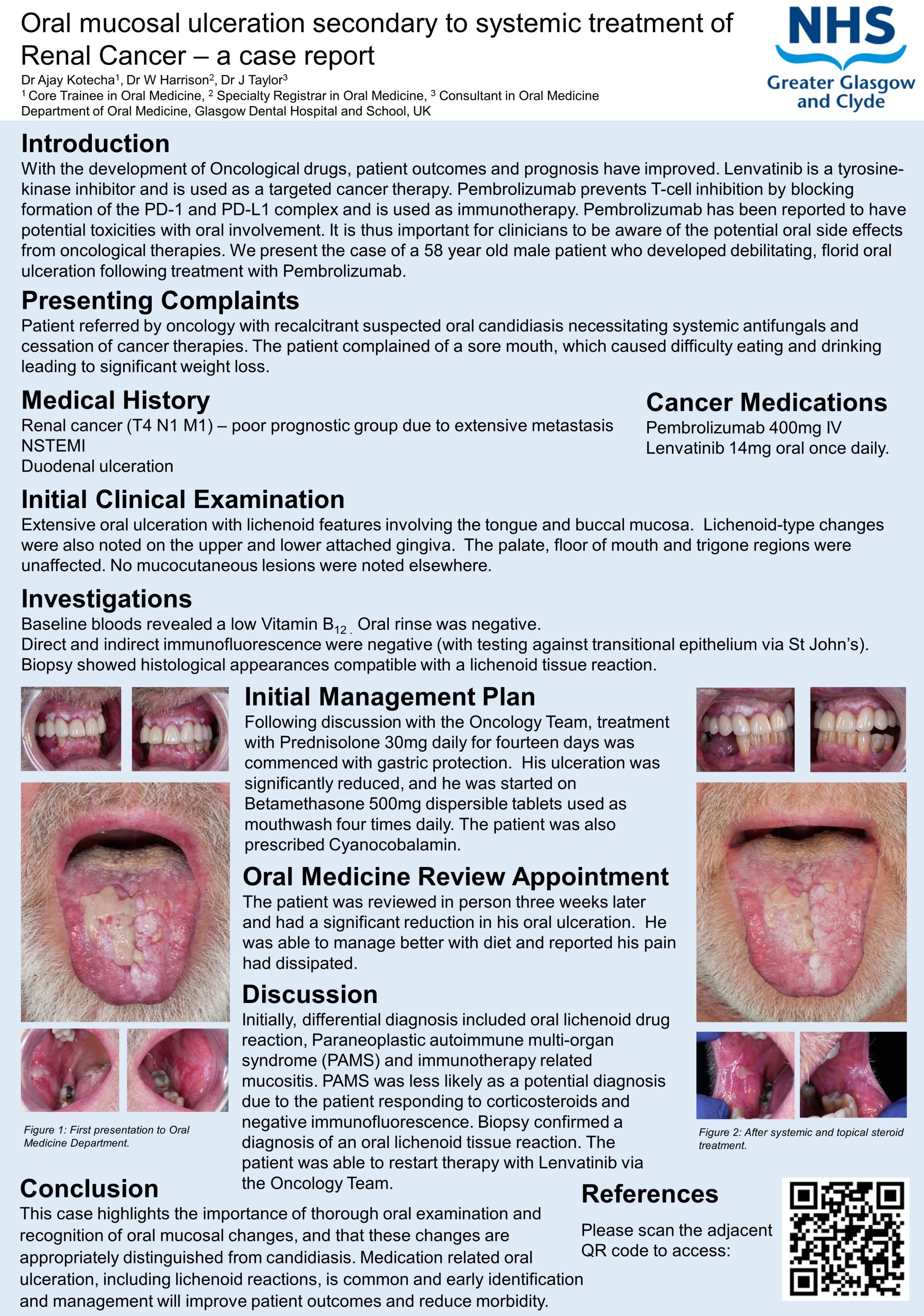Posts by Patricia de Vries
Nicotinamide N-Methyltransferase (NNMT) is an Anti-Cancer Target in Cultured Human Oral Squamous Cell Carcinoma (OSCC).
Background: Oral squamous cell carcinoma makes up 90% of oral malignancies. With a poor five-year survival, a targeted approach may prove a useful adjunct to established cancer therapeutics. The enzyme, N-Nicotinamide Methyltransferase (NNMT) is overexpressed in a variety of cancers and has been investigated as an anti-cancer target. We recently identified two inhibitors of NNMT…
Read MoreA Case of Severe Contact Dermatitis to Topical Steroids Affecting the Lower Lip: Why Less is Sometimes More.
A 75 year old patient was referred to the Oral Medicine unit at the Dublin Dental University Hospital in relation to extensive painful ulceration of the lower vermilion border. She had no rash or nail or genital symptoms. She had a history of basal cell carcinomas and was under the care of a dermatologist. Her…
Read MoreJourney of a Patient with Recalcitrant Anti-Laminin 332 Mucous Membrane Pemphigoid
This case describes the journey of a patient referred to Cardiff Oral Medicine Department in 2021 for recalcitrant mucous membrane pemphigoid, subsequently diagnosed as laminin-332 subtype. She presented with multi-site disease, initially affecting the oral cavity and vaginal mucosa. Despite treatment with prednisolone and mycophenolate, the disease continued to progress, giving ocular symblepharon, nasal involvement,…
Read MoreA Service Review of Topical Tacrolimus-based treatment for Oral Mucosal Disorders in a Dental Hospital Oral Medicine Department
Introduction: Studies show topical tacrolimus to be effective across a spectrum of oral mucosal disorders including lichen planus, bullous diseases and plasma cell gingivitis. In 2005 the U.S. Food and Drug Association proposed a boxed warning for tacrolimus due to the lack of long-term safety data and potential risk of the development of malignancies. Currently,…
Read MoreChasing the primary
Background: Metastatic neck disease is typically due to primary squamous cell carcinoma (SCC) originating within the head and neck and the location of the first metastatic cervical lymph node can be an indicator of the potential origin of the primary tumour. The presence of a metastatic disease without an identified primary tumour, termed unknown primary,…
Read MoreThe Persistent Palatal Lesion: An Early JSLE Warning Sign
Systemic lupus erythematosus (SLE) is a complex autoimmune disease characterised by diverse clinical manifestations. In addition to constitutional symptoms, it most frequently involves the skin and joints, although serositis, nephritis, haematological cytopenia, and neurological manifestations may occur during the course of the disease. A variety of oral mucosal lesions, such as cheilitis, erythematous patches, and…
Read MoreProgression and management Linear IgA disease with oral, pharyngeal and ocular involvement: A Case Report
Background Linear IgA disease(1) is a rare, auto-immune mucocutaneous blistering condition, which can be difficult to diagnose and manage(2). This case describes the progression of a well-localised, asymptomatic area of desquamative gingivitis to multi-site linear IgA disease with oropharyngeal and ocular involvement, eventually requiring systemic therapy and surgical intervention. Case Summary A 76-year-old man was…
Read MoreAn unusual cause of lip swelling
Recurrent lip swelling is a frequent presentation to Oral Medicine with causes including orofacial granulomatosis, allergic angioedema, and hereditary angioedema. We present a case of lip swelling associated with stannous fluoride allergy. A 19-year-old woman presented with a 6-month history of episodic lip swelling and crusting. She described episodes of symmetrical upper and lower lip…
Read MoreA rare case of paediatric toxic epidermal necrolysis and an update on management
Steven-Johnson Syndrome/Toxic Epidermal Necrolysis (SJS/TEN) is a rare, potentially life-threatening reaction affecting skin and mucous membranes. In contrast to adult cases, paediatric SJS/TEN is more commonly associated with infection than medication1. A 12-year-old girl initially presented to her GP with a 5-day history of pyrexia and sore throat and a 1-day history of a violaceous…
Read MoreOral mucosal ulceration secondary to systemic treatment of Renal Cancer – a case report
Introduction Immunotherapy and targeted cancer therapies have revolutionised cancer treatment, however, whilst improving survival rates, toxicities with potential oral involvement continue to be problematic. Pembrolizumab prevents T-cell inhibition by blocking formation of the PD-1 and PD-L1 complex and is used as a cancer immunotherapy. By nature of its mechanism it can cause immune mediated reactions,…
Read More